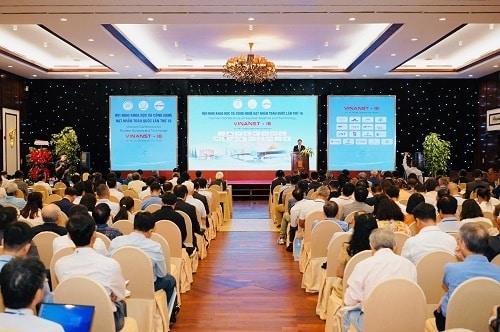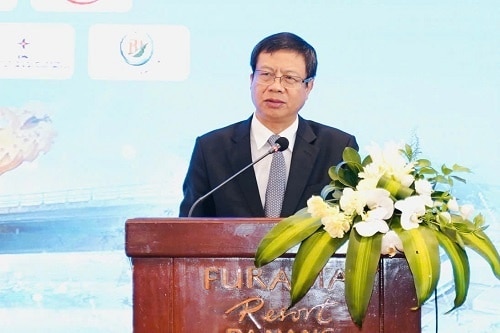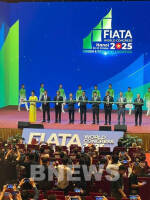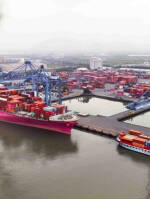
The event gathered scientists, managers, researchers and students, as well as organisations, research institutes, universities, and international partners.
Vietnam is promoting energy conversion and science and technology development to meet its green growth goals, and ensure sustainable development and national energy security.
The conference provided an opportunity to meet and exchange new research results and applications, and to discuss current issues surrounding the application of nuclear energy in various economic and social fields.
Speaking at the opening ceremony, Deputy Minister of Science and Technology Le Xuan Dinh said that implementing the direction of Party General Secretary To Lam, the Vietnamese nuclear power industry needs to develop sustainably and step by step, building safety as a foundation, developing endogenous capacity, and mastering nuclear technology. It also needs to increase investment in scientific research, infrastructure, training high-quality human resources, and preparing scientific and technological conditions for the development of nuclear power programmes.
He added, “This conference also aims to promote international cooperation. This is an important opportunity for scientists, management agencies, and domestic and foreign organisations to exchange and share research results, initiatives, and solutions to concretize the general secretary’s directive to develop Vietnam’s nuclear energy industry.”

The deputy minister highly appreciated the participation and support of international organisations such as the International Atomic Energy Agency (IAEA) and the RCA Office, and the cooperation of research institutes, universities, and enterprises at home and abroad. The presence and companionship of the delegates is a testament to the spirit of extensive international cooperation, contributing to improving Vietnam’s nuclear science and technology capacity, he added.
Speaking at the conference, Chairman of Danang People’s Committee Pham Duc An said that radiation facilities are mainly focusing on the application of radiation and radioactive isotopes in medical treatment.
In addition, facilities are using radioactive sources and equipment for security inspections, industrial irradiation, food preservation, and others, making important contributions to the city’s socioeconomic development.
Danang hopes to continue receiving support and cooperation from relevant ministries, agencies, and scientists to apply nuclear technology and techniques.
The Party, state, and government have issued guidelines and policies to promote the development and application of nuclear energy for peaceful purposes, effectively serving the industrialisation and modernisation of the country, protecting the environment, caring for health, and sustainable development.
On February 5, the prime minister issued Decision No.245/QD-TTg approving a plan for the development and application of nuclear power. This plan clearly defines major orientations for research, development of technical infrastructure, training of human resources, and strengthening international cooperation towards the widespread application of nuclear technology in socioeconomic fields.
The new Law on Nuclear Energy (amended) will take effect from January 1, 2026, with many breakthrough innovations, including enhancing the role and responsibility of local authorities in managing radiation safety and radioactive source security. It also expands incentive mechanisms, and supports research, innovation, and technology transfer, as well as perfecting the investment legal system on responding to nuclear radiation incidents in accordance with international standards.
Bich Thuy





